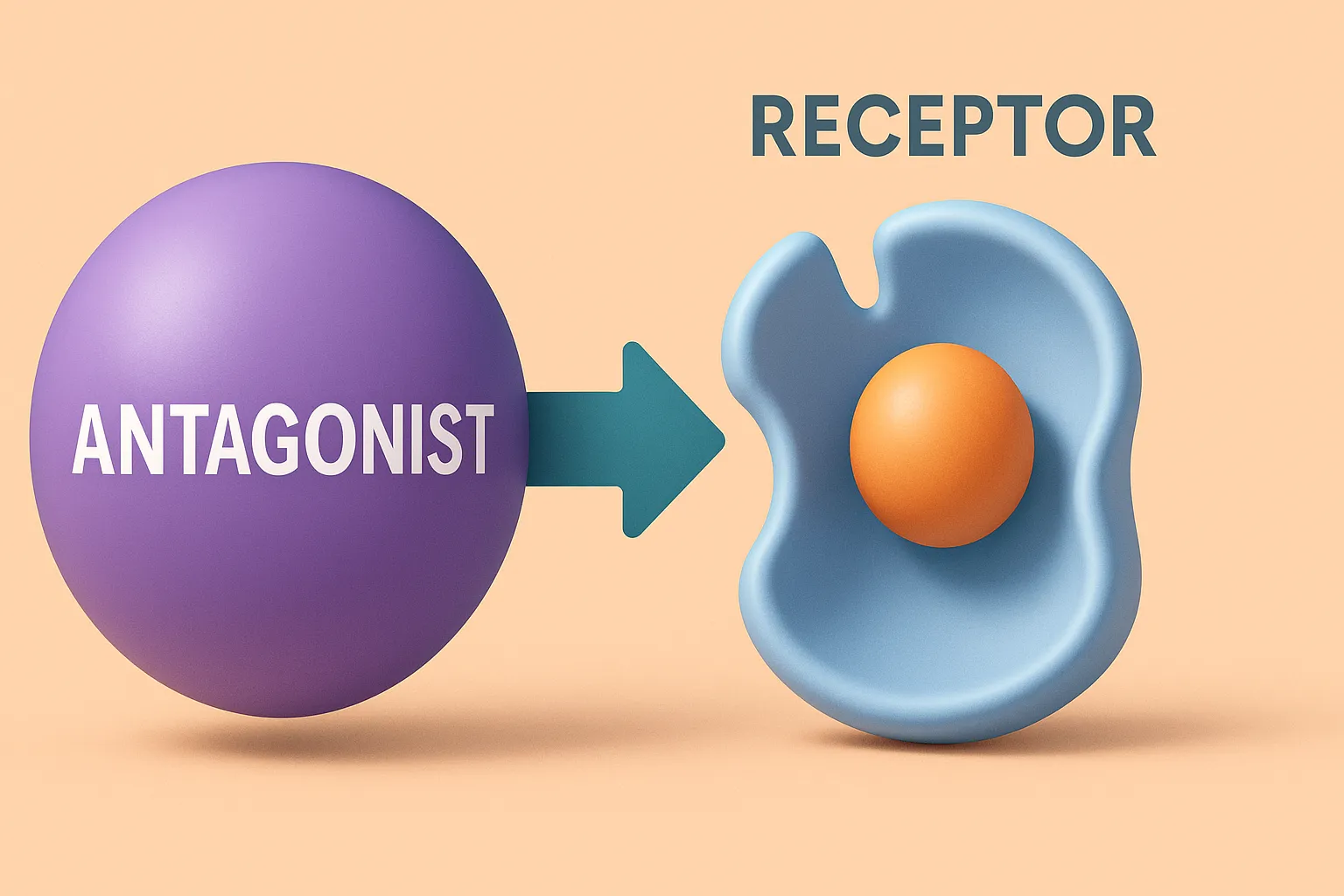Antagonists are drugs that block receptor activity, preventing the action of agonists or natural ligands.
Definition:
- An antagonist is a drug that binds to a receptor without activating it. It blocks the action of agonists (both drugs and endogenous substances).
Types of Antagonists:
-
Competitive Antagonist:
- Binds reversibly to the same site as the agonist on the receptor.
- Competes with the agonist for binding.
- The effect of a competitive antagonist can be overcome by increasing the concentration of the agonist.
- Example: Naloxone competes with opioids at opioid receptors.
-
Non-competitive Antagonist:
- Binds either irreversibly to the receptor or to a different (allosteric) site.
- Reduces the maximum response of the agonist, regardless of its concentration.
- Example: Phenoxybenzamine, an irreversible α-adrenergic blocker.
Click Here to Watch the Best Pharma Videos

